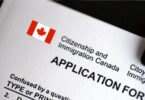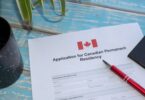Advertisements
If you’re reading this, you’re probably considering making the big move to Canada. It’s an exciting journey, but like any major life change, it requires careful planning—especially when it comes to your finances. We’ve compiled some tips to help you budget wisely for a cost-effective immigration to Canada.
Let’s go straight into these money saving tips:
Understand the Immigration Pathways
Canada offers various immigration programs, each with its own requirements and costs. Getting to know these immigration pathways can help you choose the most cost-effective path.
- Express Entry System: This is a points-based system for skilled workers. Applicants are scored based on factors like age, education, work experience, and language proficiency. The higher your score, the better your chances. Let’s look at how the express entry system helps in budgeting:
- Fixed and predictable costs – Application fees are clear, with no hidden charges.
- Faster processing – Applications take about six months, reducing extra expenses.
- No job offer required – Saves money on recruitment agencies or sponsorships.
- Lower proof of funds – Less money is needed compared to some other pathways.
- Provincial Nominee Programs (PNPs): Provinces and territories in Canada have their own immigration programs targeting specific needs. Researching and applying to a PNP that aligns with your skills can be a strategic move. Let’s also see how this provincial nominee program helps in budgeting:
- Lower CRS score requirement – A PNP nomination gives you 600 points, so no need to retake tests.
- Cheaper provinces – Many PNP provinces have a lower cost of living than big cities like Toronto or Vancouver..
- Financial support – Some provinces offer settlement support, saving you money.
- Job security – Many PNPs require a job offer, meaning you arrive with a paycheck waiting.
Factor in Application Fees and Related Costs
Immigration isn’t free, and it’s essential to account for all associated expenses.
- Application Fees: These vary depending on the program. For instance, the processing fee for the principal applicant under Express Entry is CAD $825, with an additional CAD $500 for the right of permanent residence.Spouses and dependent children have separate fees.
- Language Tests: Proficiency in English or French is mandatory. Tests like IELTS or CELPIP for English and TEF for French come with their own costs.
- Educational Credential Assessment (ECA): If you completed your education outside Canada, you’ll need an ECA to verify your credentials, which also incurs a fee.
Save on Relocation Expenses
Moving to a new country involves several costs, but with careful planning, you can minimize them.
- Travel Costs: Book flights well in advance to secure better deals. Keep an eye out for discounts or promotions.
- Shipping Belongings: Evaluate what you truly need to bring. Shipping fewer items can significantly reduce costs.You can even decide to sell or donate items you can easily replace in Canada.
- Temporary Accommodation: Initially, you might need short-term housing. Platforms like Airbnb or short-term rentals can be cost-effective solutions until you find permanent housing.
Plan for Initial Settlement Costs
Setting up your new life in Canada comes with upfront expenses.
- Housing: Renting is common for newcomers. Research average rental prices in your chosen city to budget accordingly. Remember, you’ll likely need to pay the first and last month’s rent upfront.
- Utilities and Internet: These are often separate from rent. Get estimates for electricity, water, heating, and internet services to include in your budget.
- Transportation: Depending on where you settle, public transportation might be the most economical choice. Check for monthly transit passes or even consider biking if it’s possible.
- Budget for Daily Living Expenses
Understanding the cost of living will help you manage your finances effectively.
- Groceries: On average, a single person might spend around CAD $200–$300 monthly on groceries. Shopping at discount stores or local markets can help elongate the duration of your dollar
- Healthcare: Canada has a public healthcare system but there’s a waiting period before coverage kicks in. You may want to purchase temporary health insurance during this period.
- Entertainment and Miscellaneous: Allocate funds for leisure activities, dining out, and unforeseen expenses. It’s essential to enjoy your new environment while staying within budget.
Build an Emergency Fund
Life is unpredictable so it is necessary to have a financial cushion so you can have peace of mind.
- Savings: Aim to save at least three to six months’ worth of living expenses. This fund can support you in case of job hunting delays or unexpected costs.
Leverage Settlement Services
Canada offers numerous resources to help newcomers integrate smoothly.
Advertisements
- Government Programs: Some of their available services like language classes, job search workshops, and mentorship programs are often free. Take advantage of these opportunities so you can reduce costs and ease your transition.
Embrace a Frugal Lifestyle Initially
Starting modestly can set a strong financial foundation.
- Second-Hand Goods: Websites like Kijiji or Facebook Marketplace offer affordable furniture and household items.
- Public Libraries: They provide free access to books, movies, and even community events. See these community events as a great way to enjoy entertainment without spending much.
Monitor and Adjust Your Budget
Regularly reviewing your finances ensures you stay on track.
- Expense Tracking: Use budgeting apps or simple spreadsheets to monitor your spending. It is necessary to know areas where you are overspending so you can make any needed adjustments.
Stay Informed About Financial Practices in Canada
Having an understanding of the local financial landscape can prevent costly mistakes.
- Credit Score: Building a good credit history is important in Canada. Pay your bills on time and keep credit card balances low. This will help you maintain a healthy score.
Find Budget-Friendly Banking Solutions
It is important that you open a Canadian bank account and it’s also important to know that not all banks have the same fees.
- Look for newcomer bank accounts that come with free transactions and no monthly fees.
- You can use cost-effective remittance services when sending money back home so as to be able to avoid high international transfer fees.
Consider Side Hustles for Extra Income
Even as you are job hunting, try to have an extra income stream so you can ease financial pressure.
- Online gigs like freelancing, tutoring, or virtual assistance can bring in money while you settle.
- Part-time jobs in retail or hospitality can also help cover expenses.
FAQs About Budgeting for Immigration to Canada
1: How much money should I bring when immigrating to Canada?
The amount depends on your immigration pathway and family size. For Express Entry, a single applicant needs around CAD $13,757, while a family of four needs about CAD $25,564 (as of 2024). Always check the latest proof of funds requirement on the Government of Canada website.
2: How can I save money on accommodation when I arrive?
- Look for shared housing or basement apartments, which are cheaper than standalone units.
- Consider staying with family or friends if possible, even for a short time.
- Use platforms like Facebook Marketplace and Kijiji to find budget-friendly rentals.
3: Are there free services to help me settle in Canada?
Yes! Canada offers government-funded settlement services that provide:
- Free language classes (English/French).
- Job search assistance and resume-building workshops.
- Mentorship programs and financial literacy training.
4: How can I cut costs on transportation?
- Buy a monthly transit pass instead of paying per trip.
- Look into discounted transportation cards that are available to students or low-income earners.
- If possible, bike or walk to reduce expenses.
5: Is it necessary to buy private health insurance?
Yes, if you are moving to a province with a healthcare waiting period (e.g., Ontario, British Columbia, Quebec). Private health insurance will protect you from expensive medical bills before your provincial coverage starts.
6: How can I build a good credit score in Canada?
- Open a no-fee credit card and make small purchases, ensuring you pay your bill on time.
- Pay rent and utility bills promptly.
- Avoid maxing out your credit card; try to keep usage below 30% of your credit limit.
Q7: What is the best way to send money back home?
- Avoid traditional banks, as they charge high fees and exchange rates.
- Use online remittance services like; Wise, Remitly, or WorldRemit for better rates.
- Compare transfer fees before making transactions.
Q8: How can I find a job quickly in Canada?
- Prepare your resume to be up to the Canadian standards and apply through job boards like Indeed, LinkedIn, and Job Bank.
- Network with professionals in your field via LinkedIn or local events.
- Consider part-time jobs or gig work while you search for a full-time role.
Conclusion
Immigrating to Canada is a big step, but it doesn’t have to be a financial burden. If you are able to plan wisely, cut unnecessary costs, and use available resources, you can settle in comfortably without breaking the bank. Start by choosing the right immigration pathway, save on housing, find a cheaper means of transportation and cut down on daily expenses. Having a smart budget will make your transition smoother. Your dream of living in Canada is within reach, you just need the right financial strategy.
Do your research, save up some more money, and spend wisely!
Advertisements






